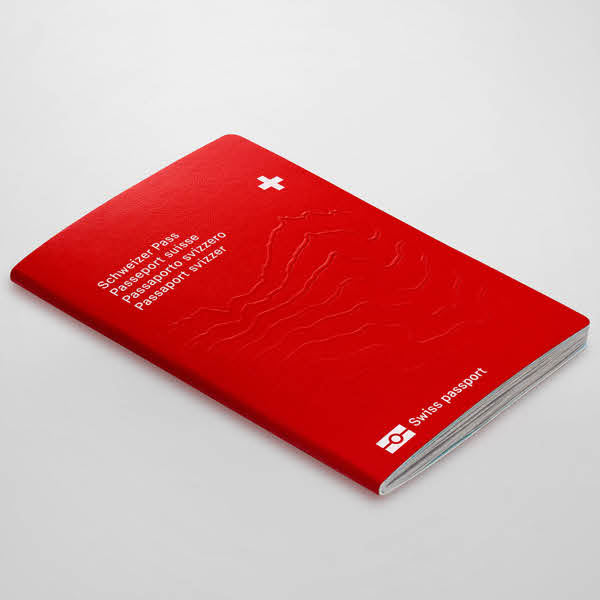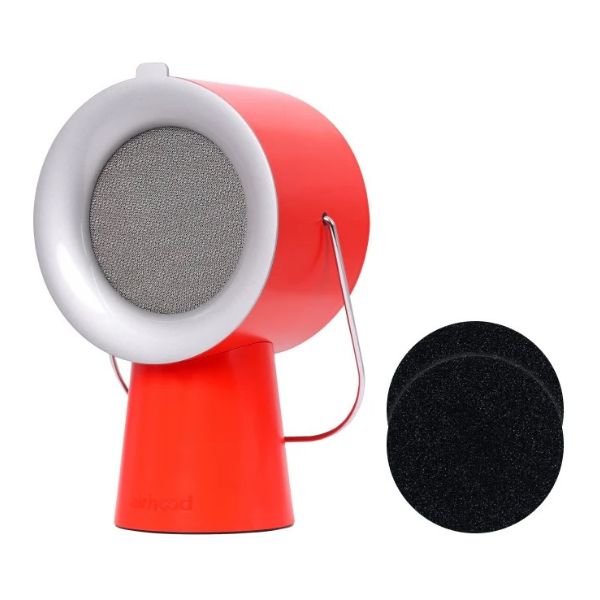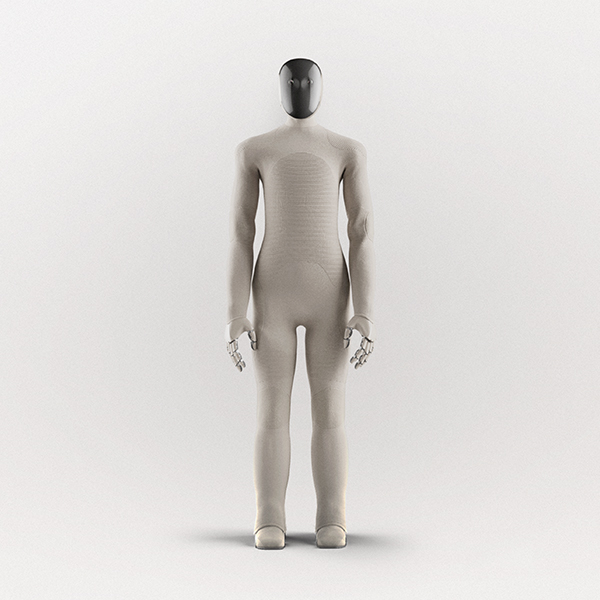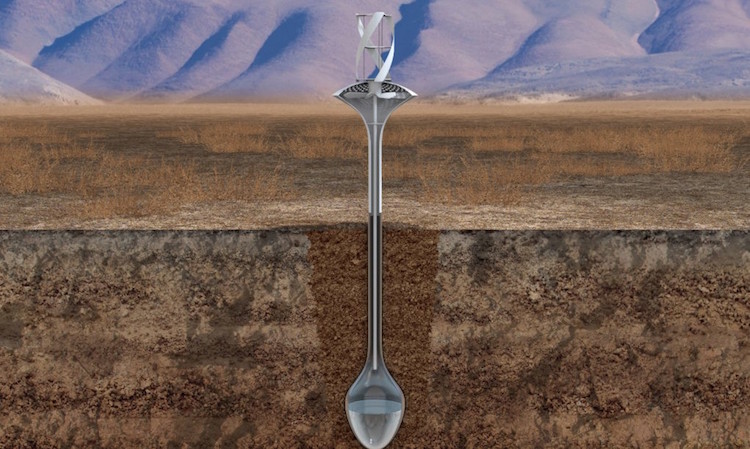
Did you know that over 2.2 billion people around the globe do not have access to clean drinking water? And that women and children can spend up to 6 hours a day collecting and carrying water, often polluted, to supply the needs to their family? Water Seer provides an innovative solution to make clean drinking water available to a wider part of the population. Developed by VICI-Labs, in partnership with UC Berkeley and the National Peace Corps Association, the device relies on simple principles of condensation and is currently in a testing phase to finalize its design.
The device functions by being implanted six feet in the ground, allowing the metal sides to be cooled by the surrounding soil. Wind turbines above ground spin internal blades that push air into a condensation chamber. This warmer air cools, creating a water vapor that runs down the sides into a collection chamber. The water can then be collected with an attached pump and due to the fact that soil temperature is always cooler than outside air, Water Seer works 24 hours a day, even without wind.
Field tests in San Francisco have yielded up to 11 gallons of water in one day, though actual yield can vary depending on the environment. The current prototype was designed with an aim of up to 37 gallons of clean water per day. The water collected is distilled, making it cleaner than tap water, regardless of air pollutants, and a filter on the device ensures that insects and debris do not contaminate the chamber. All this without using any external power supply.
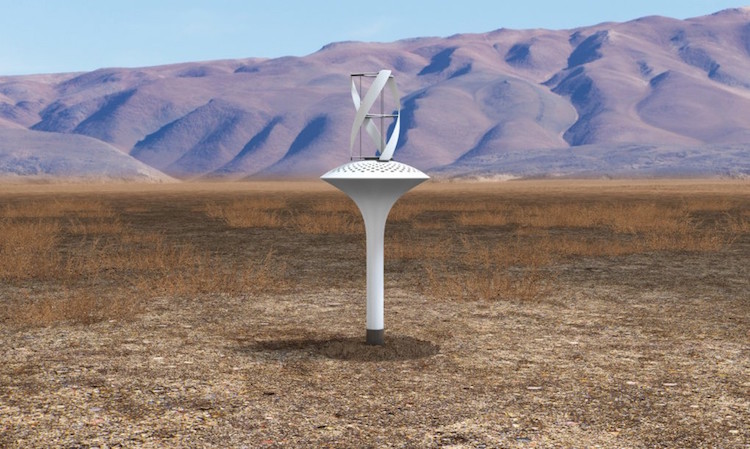
Water Seer is currently running an Indiegogo campaign to fund the next phase of prototype testing in collaboration with the National Peace Corps Association. This collaboration will allow Water Seer, a non-for-profit initiative, to be field tested in communities that could benefit the most from the device. Currently, for every WaterSeer purchased, one will be sent to a family in a developing country. The hope is that freeing the burden of water collection will allow further focus on education and economic development in this communities.
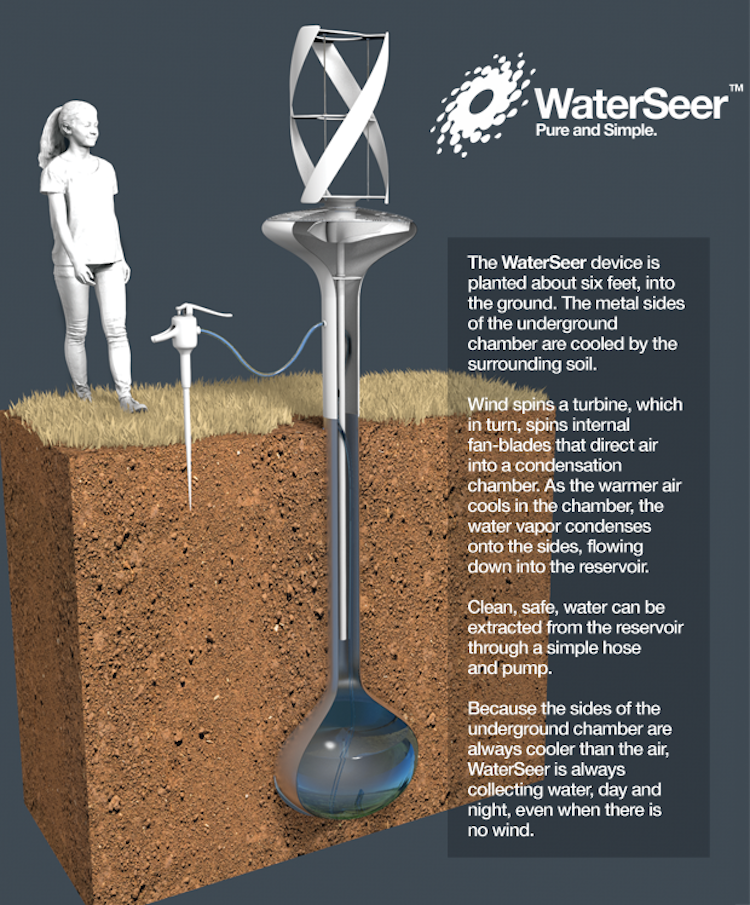
Water Seer: Website | Indiegogo
via [Inhabitat]
All photos via Water Seer.

















































































